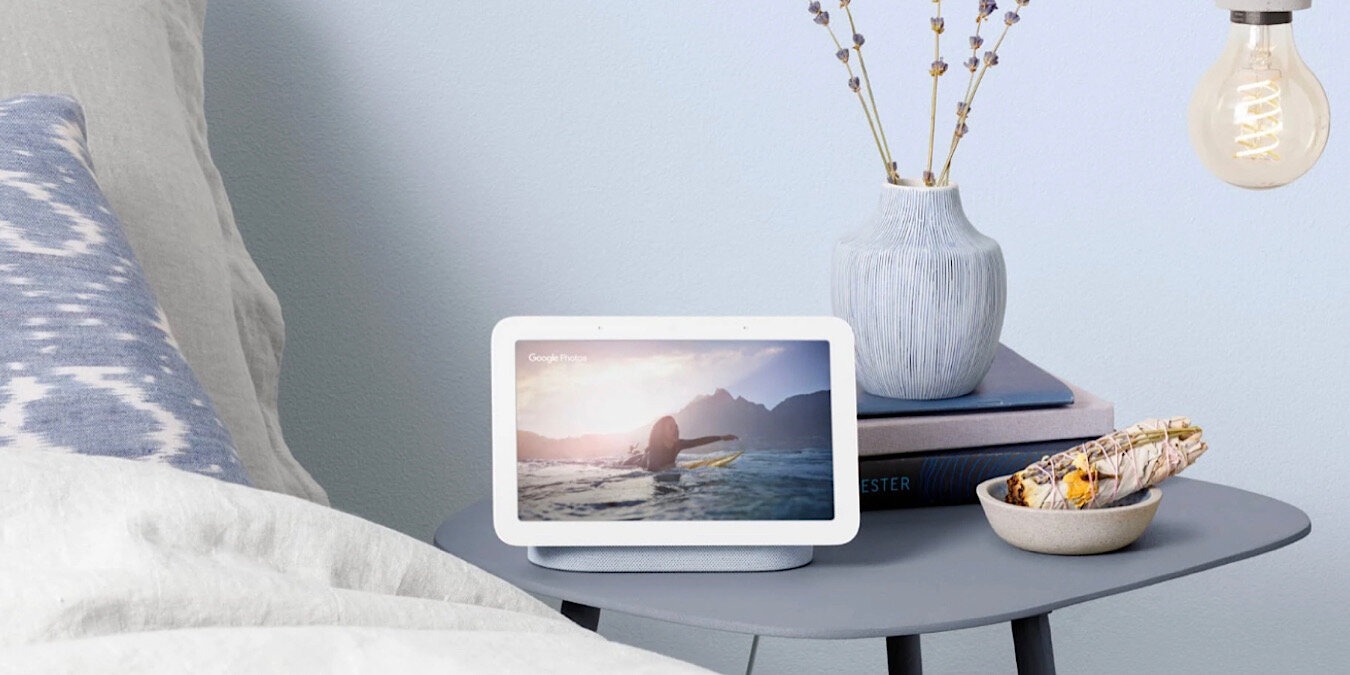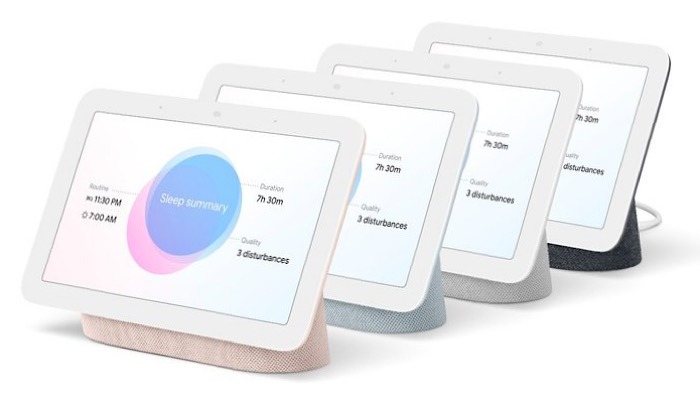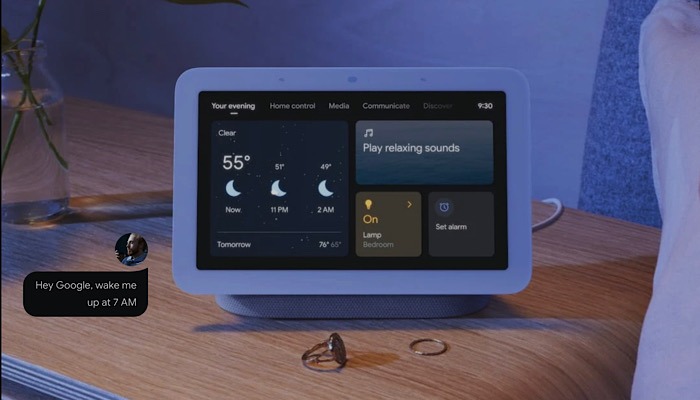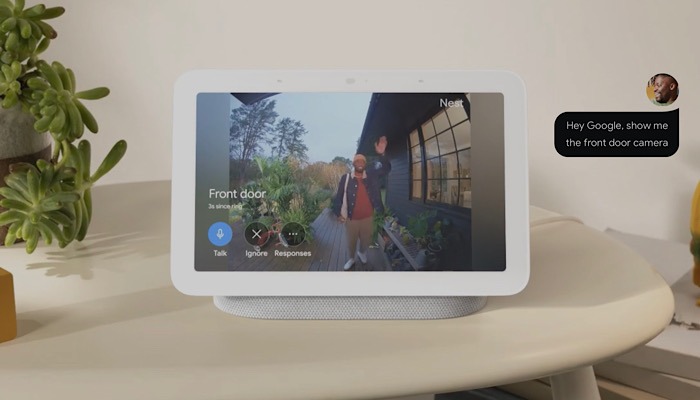
Wearables have definitely claimed their spot in the market. Perhaps because of this, new Internet of things devices are taking on those same functionalities. Google announced this week that the new Nest Hub will function as a sleep tracker as well as a smart home hub.
Google Announces New Nest Hub
Google’s Nest Hub was due for an update. It’s been more than two years. The company announced this week that a new Nest Hub is available for preorder.
The new Nest Hub will look much like the former Google Home Hub. It will get a welcome update of being available in a collection of neutral colors. Dashing the hopes of many, a camera is not being added to it.

One addition Google has added to the updated device is the Soli technology that initially made its debut in 2015. This adds hand gesture control, such as playback and pause initiated by tapping in the air or snoozing an alarm with a wave of the hand.
Other additions allow the Nest Hub to function as a steep tracker. Before even getting to the point of tracking your sleep, the new Nest Hub will handle your nighttime routine. It can turn off your smart lights or possibly dim them. It can set an alarm and play soothing music or white noise. These functions can all be handled on the “Your Evening” page.
The Soli technology will come into play during your sleep as well. Of course, you can’t make hand gestures while you’re sleeping – instead, Soli will measure your movements and breathing patterns.

While we’re used to this functionality on smartwatches and Fitbits, and even smartphones, the Nest Hub how has this function, which it calls Sleep Sensing. It works best when the device is on a nightstand next to the bed. A microphone will listen for coughing and snoring, and there is also an ambient light sensor and a digital thermometer. There are no other sensors necessary, and nothing will actually attach or touch your body.
Of course, the new Nest Hub can help you out with your morning routine as well. You can get a report of your sleep, and it will correlate it to other events, such as the room temperature, the lights being turned on, etc. Eventually, it will make recommendations on how you can improve your sleep.
Not that sleep trackers are completely left out of the loop, The sleep data can be synced with your Google Fit, yet Google also promises that the data will be kept anonymous and private. Being that this is Google, this is, of course, of extreme importance. Audio recordings of your sleep are kept on the Nest Hub itself and are never stored in the cloud.
Availability
If you don’t trust Google with your data, regardless of its promises, you don’t have to enable sleep sensing on the new Nest Hub. It’s a feature that requires the user to opt in.

It does seem like the company is learning how to handle such things, though it could take some time to earn that trust. But what’s interesting in this scenario is that even though Google knows people aren’t so willing to trust it with data, it’s delving into it anyway, picking up features reserved for wearables.
Read on to learn how researchers are working on giving smart speakers health monitoring functionalities.
Image Credit: Google Blog and Google Store







